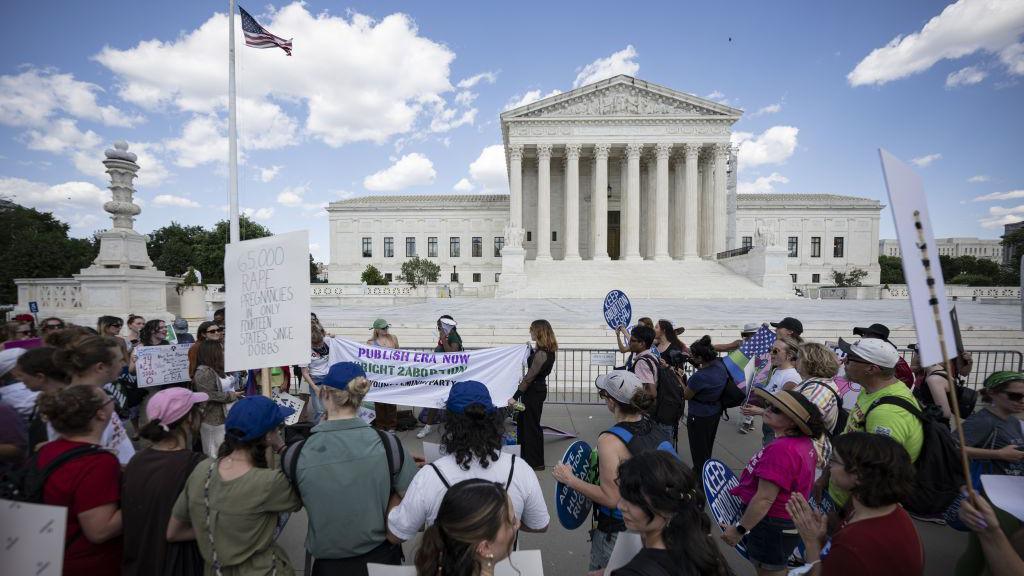Texas law will allow residents to sue mail-order abortion pill providers

- Published
A new law in Texas will allow ordinary people to sue out-of-state providers who supply abortion pills to residents of the state.
The bill - expected to be signed into law by the governor on Thursday - permits residents to bring lawsuits against manufacturers or distributors of abortion medication, with successful plaintiffs entitled to at least $100,000 (£74,500) in damages.
Texas has a near-total ban on abortions, and opponents of the new law say it will be used to intimidate abortion providers outside the state.
Nearly two-thirds of the abortions in the US are via medications - a two-pill regimen using mifepristone and misoprostol, administered within the first 12 weeks of pregnancy.
Providers who are sued would be forced to pay the pregnant woman, the man who impregnated her or other relatives the $100,000 in damages. The women who take the medication to end a pregnancy cannot be sued.
If the lawsuit is brought by a person who is not part of the family, they could only receive $10,000. The remaining $90,000 would go to charity, the bill says.
The legislation is expected to face multiple legal challenges, as other abortions restrictions have in the past.
Blair Wallace, of the American Civil Liberties Union (ACLU) of Texas, said the bill motivated "neighbours to police one another's reproductive lives, further isolating pregnant Texans, and punishing the people who care for them".
Texas is among the states that severely restrict nearly all abortions following the 2022 Supreme Court decision to overturn Roe v Wade.
A handful of US states, all led by Democrats, allow abortion providers to prescribe and mail abortion pills to patients elsewhere in the US under what are called "shield laws" that give those providers legal protection from out-of-state prosecution.
But the Texas legislation specifically says that shield laws cannot be used as a defence in the lawsuits filed under it.
The Supreme Court could ultimately decide which state law prevails.
Related topics
- Published27 March

- Published4 April 2022
